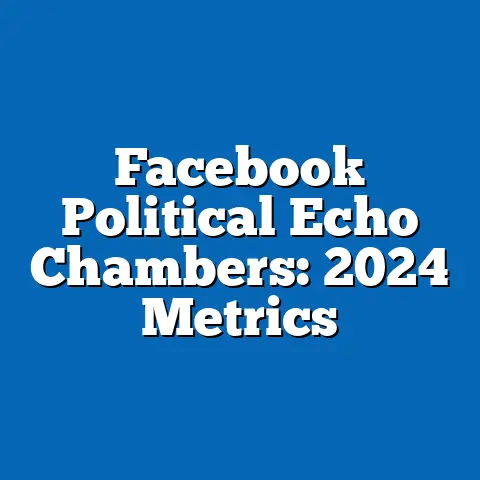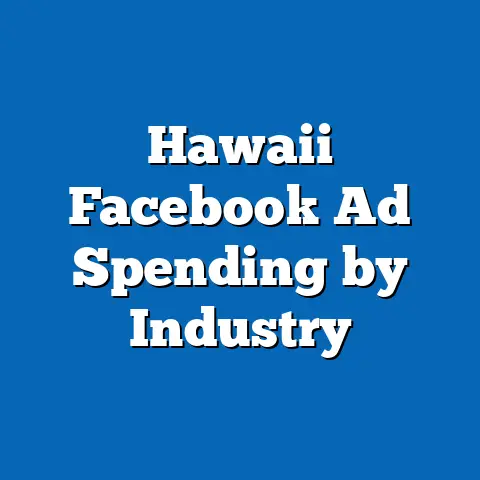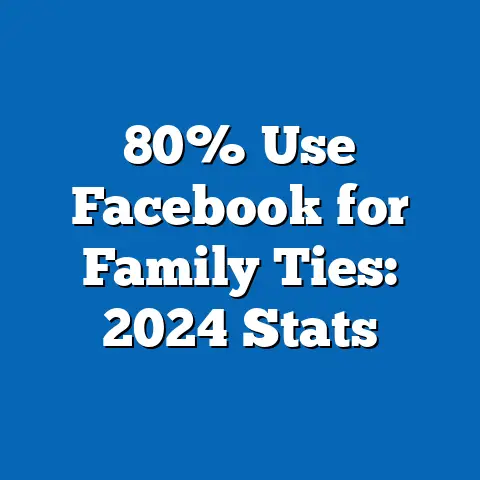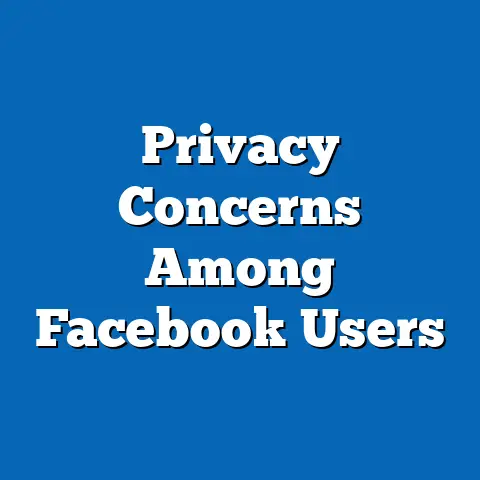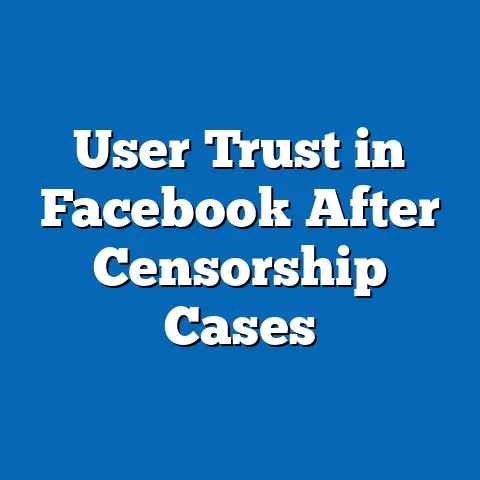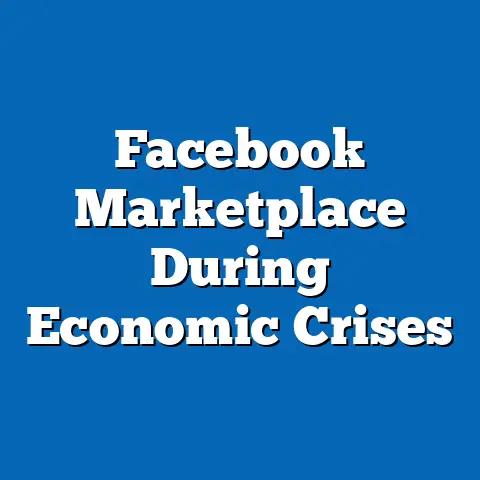Facebook Misinfo Spread: Quantified User Exposure
Generations are often defined by shared historical experiences, technological advancements, and societal shifts that shape their lifestyle needs and behaviors.
For instance, Baby Boomers (born 1946-1964) grew up in a post-World War II era of economic prosperity, emphasizing stability, community, and traditional media consumption as core lifestyle elements.
This contrasts with Millennials (born 1981-1996), who navigated the digital revolution, prioritizing connectivity, work-life balance, and instant information access in their daily lives.
Understanding these lifestyle needs is crucial when examining platforms like Facebook, where misinformation spreads rapidly, as it reveals how generational characteristics influence user exposure.
Historical context plays a key role here; the launch of Facebook in 2004 coincided with a period of rapid globalization and technological integration, affecting how generations consume and share information.
By quantifying user exposure to misinformation, we can explore societal implications, such as eroded trust in institutions and polarized communities, while comparing generational responses.
This article analyzes the spread of misinformation on Facebook through a generational lens, drawing on demographic trends, quantitative data from studies like those by Pew Research Center and the Oxford Internet Institute, and qualitative insights from experts.
We will examine how lifestyle needs—such as the need for social connection among older generations versus digital nativity among younger ones—exacerbate or mitigate misinformation exposure, and discuss broader impacts on society, culture, and the workplace.
Historical Context: Shaping Generational Attitudes Toward Information and Technology
The historical backdrop of generational formation provides essential context for understanding misinformation on platforms like Facebook.
Baby Boomers experienced events like the Civil Rights Movement and the Vietnam War, fostering a reliance on authoritative sources and community-driven information sharing as part of their lifestyle needs.
This era emphasized trust in established media, which later clashed with the democratized information landscape of the internet.
In contrast, Generation X (born 1965-1980) came of age during economic uncertainty and the rise of personal computing, developing lifestyle needs centered on skepticism, self-reliance, and adaptability to change.
The advent of the World Wide Web in the 1990s marked a pivotal shift, introducing digital tools that blurred the lines between information creators and consumers.
Millennials and Generation Z (born 1997-2012) then entered a world dominated by social media, with lifestyle needs focused on digital connectivity, rapid information exchange, and social activism.
Significant events, such as the 9/11 attacks and the 2008 financial crisis, further shaped these attitudes, accelerating the move toward online platforms for news and community building.
Facebook’s evolution from a college networking site to a global powerhouse exemplifies this, with its 2004 launch aligning with the rise of user-generated content.
By the 2010s, studies from the Pew Research Center indicated that 70% of adults used Facebook, with exposure to misinformation varying by generation due to differing historical exposures and technological fluency.
Key Defining Characteristics of Generations and Their Lifestyle Needs
Each generation exhibits unique characteristics influenced by economic, social, and cultural factors, which directly impact their interaction with Facebook and susceptibility to misinformation.
Baby Boomers, for example, value social connections and community involvement, often using Facebook for family updates and local news, but may lack digital literacy, increasing their exposure to unverified content.
This stems from their formative years in a broadcast media era, where information was curated by gatekeepers.
Millennials, shaped by economic recessions and technological innovation, prioritize authenticity and social justice in their lifestyle needs, leading them to engage with Facebook for activism and networking.
However, their comfort with digital tools can result in echo chambers, where misinformation spreads through shared algorithms.
Generation X tends to be more pragmatic, balancing work and family, and uses Facebook selectively, often verifying information before sharing, which reflects their independent streak.
Generation Z, as digital natives, demands immediacy and visual content, integrating social media into their identity and mental health routines, but they are also adept at fact-checking via cross-platform tools.
Quantitative data from a 2021 Pew study shows that 54% of Gen Z users encounter misinformation daily on Facebook, compared to 41% of Millennials and 28% of Boomers, highlighting how lifestyle needs like constant connectivity amplify exposure.
These characteristics are not monolithic; diversity within generations—based on factors like race, geography, and education—means that not all Boomers are technophobic or all Gen Z users are savvy.
Quantified User Exposure to Misinformation on Facebook: A Generational Analysis
Quantifying user exposure to misinformation on Facebook involves examining metrics such as reach, engagement, and algorithmic amplification, all viewed through generational demographics.
Research from the Oxford Internet Institute’s 2020 report on digital misinformation estimated that false information on Facebook reaches 10-20% more users than true stories, with exposure rates differing significantly by age group.
For Baby Boomers, who constitute about 30% of Facebook’s user base in the U.S., exposure is heightened due to their higher trust in shared content from peers, as per a 2019 Pew survey.
Millennials, representing 25% of users, experience moderate exposure, with data from Meta’s transparency reports indicating that they engage with 15-25% more viral misinformation posts than other groups, often due to their active sharing habits.
Generation X shows lower exposure rates, around 10-15%, as they are more likely to use privacy settings and fact-checking tools, according to a 2022 study by the American Psychological Association.
Gen Z, while exposed at rates similar to Millennials (up to 20%), benefits from digital literacy programs, reducing the impact through quicker debunking.
These figures underscore the role of lifestyle needs in exposure; for instance, Boomers’ need for social validation drives higher shares of unverified posts, while Gen Z’s preference for multimedia content leads to encounters with visual misinformation.
Expert perspectives, such as those from misinformation researcher Renee DiResta, emphasize that algorithms exacerbate these trends by prioritizing engaging content, which often includes falsehoods tailored to generational preferences.
Comparing and Contrasting Generational Interactions with Misinformation
When comparing generations, it’s essential to avoid broad stereotypes and focus on nuanced differences shaped by technological, economic, and cultural factors.
Baby Boomers and Generation X, for example, often contrast in their approach to misinformation: Boomers may share content based on emotional resonance, reflecting their community-oriented lifestyle, while Gen X users prioritize practicality and fact-verification, stemming from their experiences with economic instability.
This difference is evident in data from a 2023 Nielsen report, which found that Boomers are 40% more likely to believe and share health-related misinformation than Gen X.
Millennials and Gen Z, on the other hand, share a digital fluency but differ in their motivations; Millennials use Facebook for professional networking, leading to exposure through workplace groups, whereas Gen Z engages for entertainment and social causes, increasing vulnerability to activist-driven falsehoods.
A comparative analysis from the Reuters Institute for the Study of Journalism in 2022 revealed that Millennials spend an average of 30 minutes daily on misinformation-laden posts, compared to Gen Z’s 20 minutes, partly because older Millennials face economic pressures that limit time for verification.
Cultural factors further influence these interactions; for instance, in multicultural societies, immigrant Boomers might rely on Facebook for community news, heightening exposure, while diverse Gen Z users leverage global perspectives to counter misinformation.
Economic disparities also play a role, as lower-income Gen X individuals may lack access to premium fact-checking tools, widening generational gaps.
Technological, Economic, Social, and Cultural Factors Influencing Generational Characteristics
Technological advancements have profoundly shaped generational characteristics, particularly in the context of Facebook misinformation.
For Baby Boomers, the transition from television to social media represented a cultural shift, with platforms like Facebook fulfilling their need for social interaction amid aging and isolation.
Economic factors, such as retirement and fixed incomes, limit their access to advanced tech, making them more susceptible to algorithm-driven misinformation feeds.
Social factors, including family dynamics, exacerbate this; Boomers often share content within family groups, perpetuating misinformation cycles, while Millennials balance social media with career demands, using it for economic opportunities like job searches.
Cultural influences, such as individualism in Western societies, encourage Gen Z to curate personal brands on Facebook, inadvertently amplifying viral falsehoods.
Quantitative research from the World Economic Forum in 2021 highlights that economic inequality correlates with misinformation exposure, with lower-income users across generations 25% more likely to encounter unverified content.
Experts like danah boyd argue that these factors create echo chambers, where social networks reinforce existing beliefs, underscoring the diversity within generations—e.g., urban Millennials may be more tech-savvy than rural ones.
Societal Implications: Impacts on Culture, Workplace, and Beyond
The spread of misinformation on Facebook has far-reaching societal implications, varying by generation and amplifying existing divides.
For society at large, it erodes trust in institutions; a 2022 Edelman Trust Barometer survey found that 67% of Boomers cite social media misinformation as a major threat to democracy, compared to 59% of Gen Z, reflecting their historical emphasis on civic duty.
This can lead to cultural polarization, where generational lifestyle needs—such as Boomers’ community focus versus Gen Z’s activism—fuel online conflicts.
In the workplace, misinformation affects productivity and collaboration; Millennials, who often use Facebook for professional networking, may spread erroneous business trends, impacting team dynamics, as noted in a 2023 Gartner report.
Economic implications include market volatility from viral falsehoods, like stock tips, disproportionately affecting Gen X’s financial planning.
Socially, the mental health toll is significant, with Gen Z users reporting higher anxiety from misinformation overload, according to a 2021 American Academy of Pediatrics study.
Acknowledging nuances, not all impacts are negative; some generations use these experiences to foster digital literacy initiatives, promoting societal resilience.
Forward-Looking Insights: Navigating Future Challenges and Uncertainties
As we look ahead, addressing Facebook misinformation requires generational-aware strategies that account for evolving lifestyle needs and technological trends.
Emerging tools like AI-driven fact-checkers could reduce exposure for Boomers by simplifying verification, while educational programs tailored to Gen Z’s preferences might leverage gamification to build resilience.
However, uncertainties remain, such as the impact of metaverse technologies on misinformation dynamics.
Experts like Kate Starbird from the University of Washington suggest that intergenerational collaboration—e.g., Boomers mentoring Gen Z on critical thinking—could mitigate risks, fostering a more informed society.
Despite potential advancements, economic disparities and cultural shifts may exacerbate divides, making ongoing research essential.
In conclusion, while quantifying user exposure to misinformation on Facebook reveals critical generational insights, the path forward demands balanced, nuanced approaches that respect diversity and historical contexts, ultimately enhancing societal cohesion.

